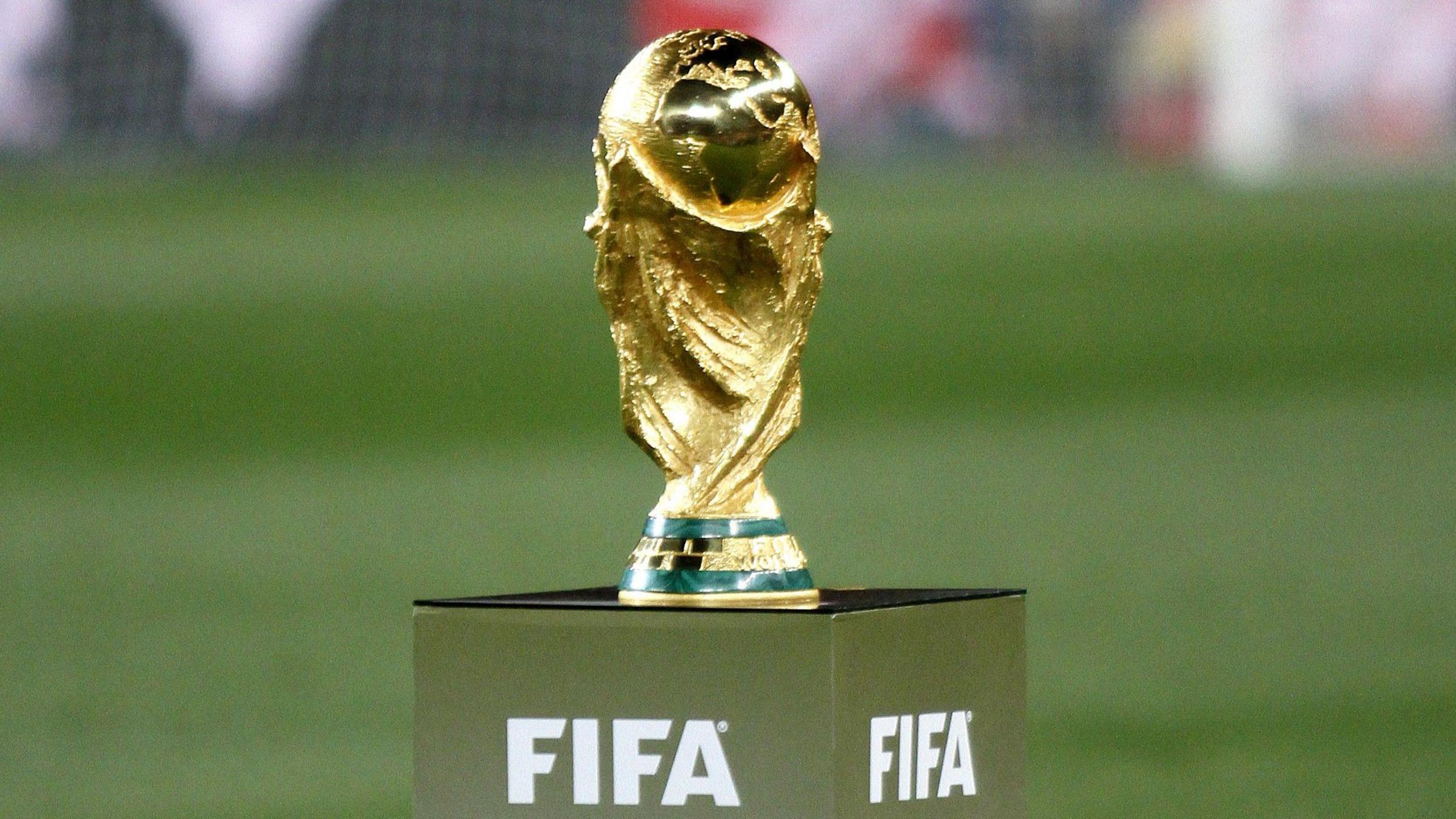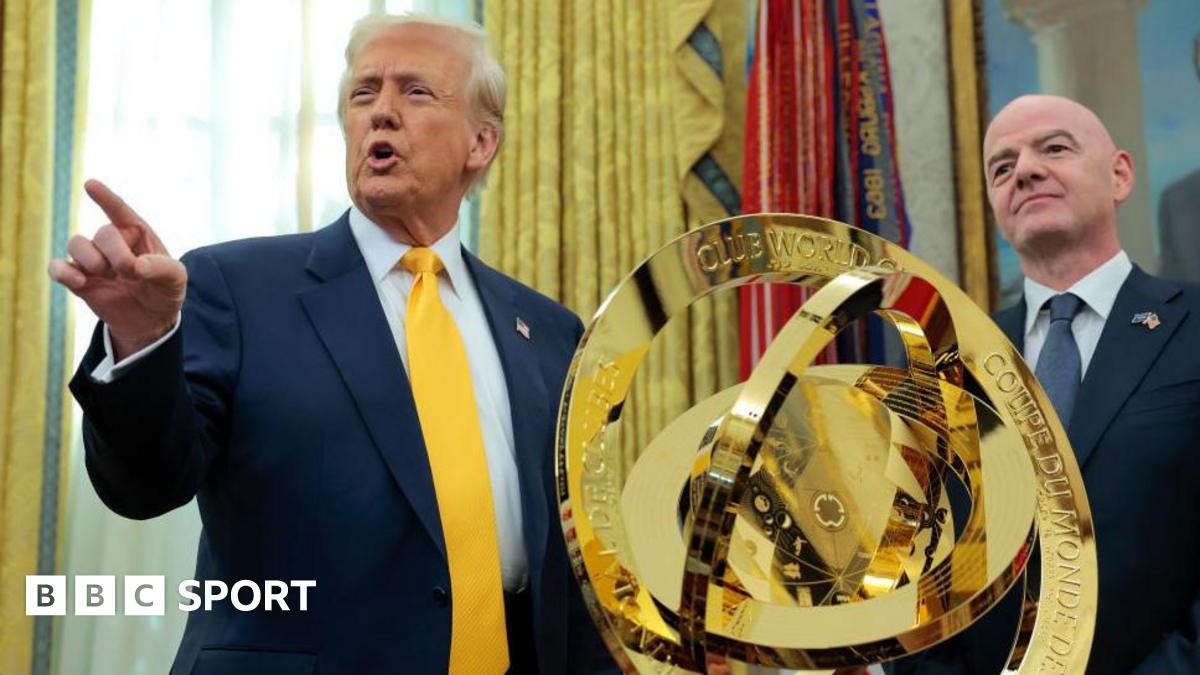 Image source, Getty Images
Image source, Getty Images
The World Cup in the United States, Canada and Mexico will be held from 11 June to 19 July next year
Next year's Fifa World Cup in the United States, Canada and Mexico is set to be "the most climate-damaging" in the tournament's history, according to new research by environmentalists.
Scientists for Global Responsibility (SGR) has calculated the greenhouse gas emissions attributable to the tournament, which has been expanded from 32 to 48 teams.
"Driven by a high reliance on air travel and significant increase in the quantity of matches" the campaign group claims the expanded 2026 World Cup will generate more than nine million tonnes of carbon dioxide equivalent.
SGR says that is almost double the average for the last four World Cup finals, and significantly more than Qatar 2022, which is estimated to have had a footprint of up to 5.25 million tonnes of CO2e.
It says the predicted 2026 total is "equivalent to nearly 6.5 million average British cars being driven for an entire year" - and will make it the most polluting tournament ever staged.
Next year's World Cup will be the first to be held across an entire continent and have 40 more matches (104) than before, although all will be played at existing stadia.
In their original bid book, the three prospective host nations for the 2026 tournament revealed a preliminary estimate of 3.6 million tonnes of CO2e, although at that stage it was expected to stage just 80 matches. They also said the bid "hopes the 2026 World Cup will establish new standards for environmental sustainability in sport and deliver measurable environmental benefits".
Fifa has been approached for comment.
The world governing body has previously committed to reducing emissions by 50% by 2030 and to reaching net-zero by 2040.
It has said that is has developed and implemented sustainability strategies that have allowed it "to be aware of its impact and take adequate action".
"As a result, on the environmental side, greenhouse gas emissions have been assessed and mitigated, waste has been substantially reduced and tonnes of material have been recycled and diverted from landfill, and stadium construction and operations have been certified according to green building standards," Fifa has said.
In 2023, a Swiss regulator ruled that the governing body made "unsubstantiated claims" about the reduced environmental impact of the 2022 World Cup in Qatar.
Fifa had said that the tournament would be the first "fully carbon-neutral World Cup", but advertising regulator the Swiss Fairness Commission (SLK) upheld complaints from five European nations.

 9 hours ago
5
9 hours ago
5










 English (US)
English (US)